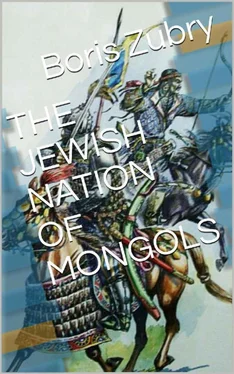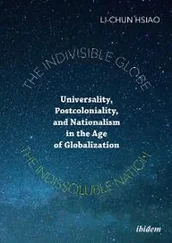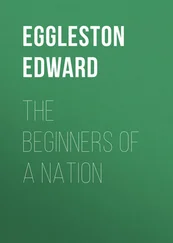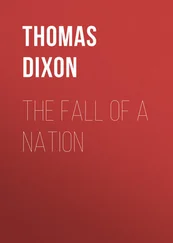Rabbi Shneur Zalman was the most prominent Aaron’s ancestry on the father’s mother’s side. His grandfather used to say that it was why the Cohens never had any money but not even once was short of good thoughts. All members of the extended family tree on that side of Aaron’s ancestry were known and present down to the sixteenth century. There were many of them and so many generations. Then, the Inquisition. In the sixteenth century, it was getting complicated somewhat. That was a confusing century in many parts of the world. It was not just the time of the lost people, but the lost records as well. The Jews were trying to survive misleading the enemies; thus, hiding some, if not most, of the information. So many pieces were missing, and so many parts did not fit. Knowledge, documents, and the facts were not there any longer, and all the present Cohens had was only guesses and just some ideas. One could not eat the ideas and facts… One could not drink the guesses. It could be too hard to swallow. One could not make the borsht (the beet soup) out of nothing. One could make gornisht (nothing) out of nothing, and that’s precisely what they had. Just the bits, and pieces, and no substance… Who could know the history of the Jewish family for certain? It was so long ago and often, so far away. Witnesses did not survive, and, again, who knows what they witnessed. Was it less than what they told or much, much more? That’s the story of the Jewish people, and the Cohens did not differ much from the mainstream. Not in any typical way that one may notice. Every Jewish family at one time or another had experienced and suffered more or less the same injustice and the level of tragedy. So had some other nations but to a somewhat lesser degree.
What was there to be so different about. A Jew is a Jew is a Jew, and that was it. That was the beauty of it. Farshteyt (Yiddish-understand)? This family was like a typical cell of the living organism called — the nation of Jews. Just one of them. Yes, it was a nation, and for about thirty-five hundred years already. Some say it was for much longer. Some say it was for fifty-five hundred or so. Such a long time. Does it really make any difference? Could anyone remember anything from back then and there? It was there back then, and it is here now, stronger than ever. Do you see that? It was like the Phoenix rising from the ashes of its predecessor. The more it was hurt, the more powerful it would rise. Yes, that’s the story of the Jewish nation, in a nutshell, and the nutshell is at least thirty-five hundred years old but most likely more. Fifty-five hundred or even more. No matter what kind of twists and turns affected the nation, the Cohen family was touched in precisely the same way. Almost every Jewish family could act as a cross-section and an indicator of the Jewish turmoil projected to that specific area and the time, and then, you move to another place, and anything could happen there. That’s the bulk of it.
The level of income did not really matter. At one time or another, someone was always better off than the others, and then, the luck would move on, and you change places. All you could do, in rare cases, is to buy a little time and, all that extra time could do is to prolong the agony. The real escape from the adversity was never in the cards. Nothing was a clear cut. You were chosen. Remember? If the Jewish disaster struck, all of the Jews had to donate to the losses. That was the most important rule for the Jewish tragedy, and the favors, deviations or the exemptions were not offered nor tolerated. Only the lucky ones would be in the wrong place when the newly created catastrophe stormed through. But, it did not mean that these lucky ones had escaped the consequences, and the catastrophe will let them go. All it meant that the misfortune would get them later and maybe hit somewhat harder, like a slap on the wrist. Who could really tell what misfortune had in store for a family of Jews? It could be anything or much more. In Jewish life, trouble was the only permanent thing you could always rely on. Just wait long enough, and it will come.
On his mother’s side, somewhere in the eighteenth century, someone met someone else, a man or a woman, who was a Bukharan Jew. Maybe a Khazar ? Maybe. What other Jews were there at the time? Well, in the distant past. He/she probably was a nice person, but what do we know of the Khazars ? This is what we know, and one would not fill too many books with it. The Khazars came from the Medieval Kingdom of Khazaria, 652–1016. We know that over a thousand years ago or so, the far east of Europe (Eastern Russia now) was ruled by the Jewish Kings that presided over the copious tribes, including their own tribe — the Turkic Khazars . Interesting is not it. Did anyone say, Slaves? Who were they, the Khazars ? Where did they come from? That is what we still need to find out, but we have some ideas. We know some, and we do not know even more. Was that the lost Jewish tribe mentioned in the Torah and so many other places? How could one misplace the whole tribe without a trace? Maybe this is the trace, the missing link? Maybe they were wandering around the Black Sea for a few hundred years and then, arrived in Khazaria? Maybe they were living there for a while before the area became known as Khazaria? There are legends in the Jewish, Russian, and the Eastern folklore. There are many legends and colorful folklore. In short, they were known and well. The Russian warlords were fighting the Jewish Khazars , laughing at them, and taking them lightly, but losing one battle after another. There is no record of Russian winnings, yet it was going on for centuries. Maybe those incidents were on a somewhat smaller scale? The border skirmishes… Who attacked whom and when did it happen? What were the Russians back then? What happened to the Slaves? Who was fighting whom and who was the winner in the end? There was a historical, but not very conclusive material available from the digs and researches, but we still rely on guesses and speculations. Records are so incomplete, scares and possibly modified. By whom? By whoever was writing the history at the time. The history was twisted and twisted again, and again, and again, and came out the way we know it now. Sometimes it sounds way too strange and even questionable, but do we know it any better? So, we have to take it the way it is and just keep digging.
In many cases, guesses and speculations were more reliable than investigations. Still, we keep digging for facts, and that fascinates us more and more. The thrill of searching, searching for truth, if possible. The look in the past, the adventure of the pursuit, and the excitement of the find. We know it makes the difference, and this was important for us and for those who briefly crossed our paths before us. They were a part of us in so many ways. Would we be us if not for them? They have existed, and we were connected, maybe more than we think. They gave us a piece of us, and that is why they were remembered. We came from them, our ancestry.
After the conversion to Judaism (or maybe they were Jews, to begin with, and that is likely), the Khazar people had employed the Jewish names, and customs. Or, they had it all ready? They spoke and wrote in Hebrew or its variations — jargons, were circumcised as all Semites did have synagogues, and the Rabbis studied and cherished Torah and the Talmud. So, did they convert, or that was the heritage? One could easily change the religion, but the heritage… How do you do that? How do you become someone else to the core? How do you change the customs, the traditions, the likes, and dislikes, the way you live? I doubt if you can do it at all. They observed all Jewish holidays such as Hanukkah, Rosh Hashanah ,Passover, Counting the Omer, Shavuot, Sukkoth, Purim, and the Sabbath, and the rest of them as well. They enjoyed the Jewish music and food. They were very Jewish Jews. At the time, Khazars were an advanced civilization, and one of the most tolerant societies of the medieval period. It could be the well-missed best part of the medieval period we don’t know much about.
Читать дальше











